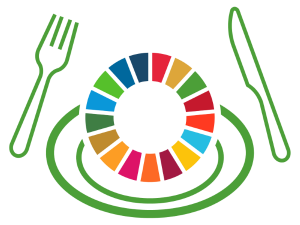Contact
SLU Future Food
futurefood@slu.se
SLU Global
global@slu.se
www.slu.se/slu-global

On 23 September, the world turns its eyes towards the global food system when the virtual UN Food System Summit is held in New York. Much of the research at SLU has a direct or indirect connection to the food system and SLU can, through its knowledge and research, contribute to the transition into a sustainable food system.
The world is facing major challenges to meet the Sustainable Development Goals (SDGs) by 2030. In order for the global food system to be sustainable and provide food for all needs, a transformation is necessary. Major societal changes and a major shift in production and consumption - locally, nationally and globally, are required.
For the past 18 months, the countries of the world have been preparing for the UN Food Systems Summit, which was announced by the UN Secretary-General António Guterres to accelerate the transition into a sustainable food system. In Sweden, the preparations have been led by the Ministry of Trade and Industry, but it has also involved a number of different authorities, researchers, organisations and the general public, and dialogue meetings at both national and regional level. SLU has played an active role in several of the national and regional dialogue meetings prior to the Food Systems Summit, including via SLU Future Food, SLU Global and SIANI (The Swedish Agricultural Network Initiative).
SLU also actively contributes to the Food Systems Summit through a report from the Swedish Board of Agriculture on food losses, which will be published in English in connection with the summit on 23 September. The report is a method description for follow-up of food waste early in the production chain, which was developed by eight researchers at SLU, from seven different departments. According to figures from the United Nations Food and Agriculture Organization (FAO), as much as 14% of the food we produce is wasted even before it reaches a store or a plate, which is a huge waste of resources. With the new methods that the Swedish Board of Agriculture has developed together with SLU researchers, Sweden will be one of the first countries in the world to follow up food losses at national level and the Swedish methodology can also help other countries to better follow up national and international goals.
Lisa Sennerby Forsse, professor emeritus and former vice-chancellor of SLU, is Sweden's representative in the scientific group for the Food Systems Summit. She is interviewed in Swedish in the podcast Feeding your mind from SLU Future Food about the work ahead of the UN summit. Lisa Sennerby Forsse has also, together with SLU researcher Jennie Barron, contributed to the publication Science and Innovations for Food Systems Transformation and Summit Actions.
Large parts of the research at SLU are directly or indirectly linked to the food system and/or the SDGs. Here you can find more information:
Do you want to discuss with a researcher about sustainable food systems in a global or national perspective, or food waste? Please feel free to contact someone at SLU:
SLU Future Food
futurefood@slu.se
SLU Global
global@slu.se
www.slu.se/slu-global
Blog post about Science and knowledge for the UN Food Systems Summit 2021 by Joachim von Braun, Kaosar Afsana, Louise O. Fresco, Mohamed Hassan
Chair and Vice Chairs of the Scientific Group of the UNFSS